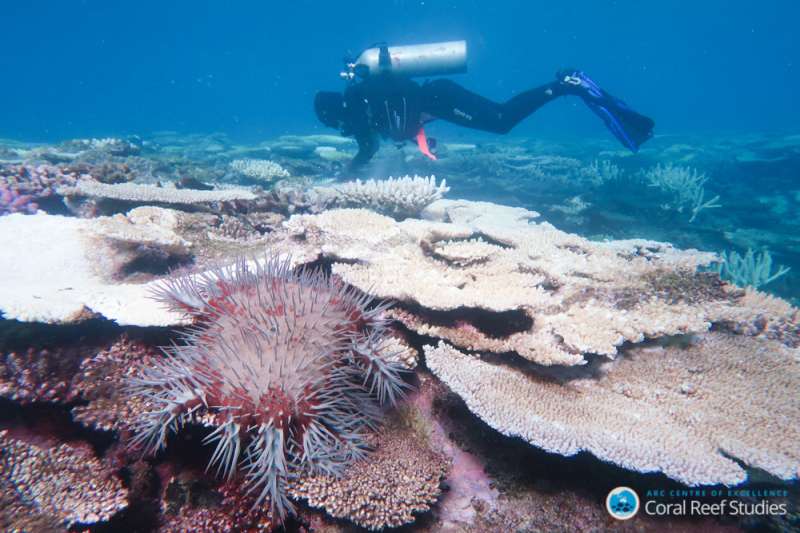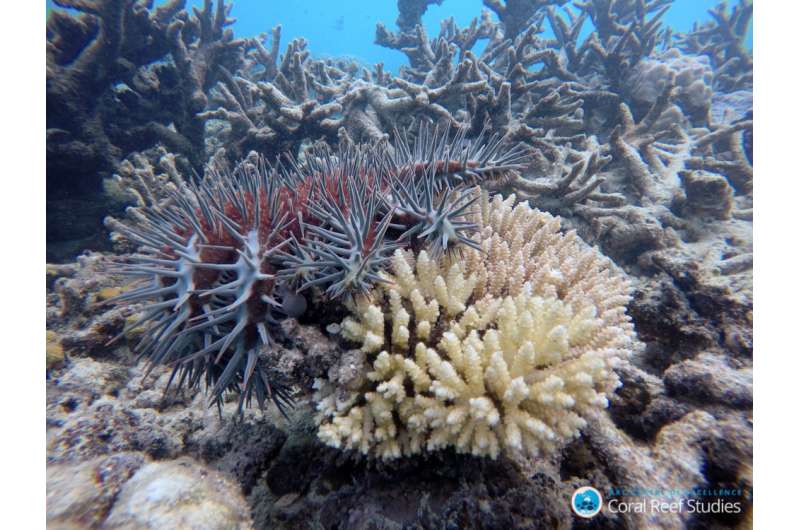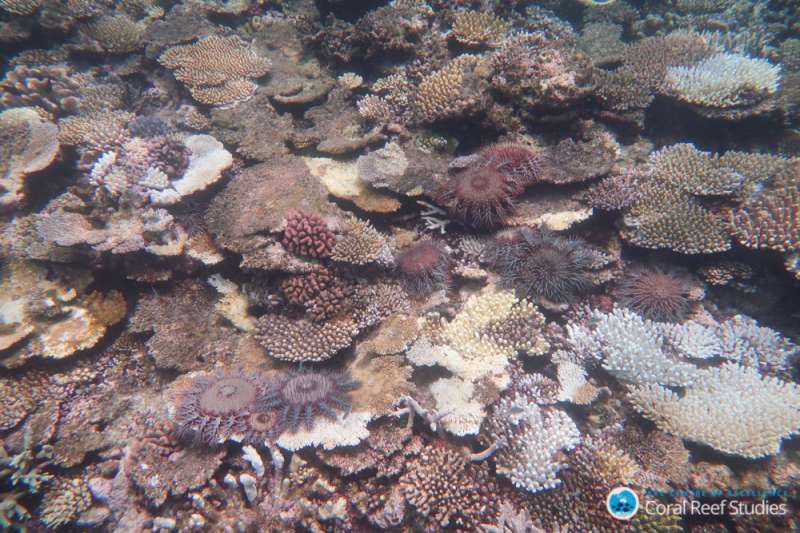Crown-of-thorns starfish (Acanthaster cf. solaris) munching its way through the Acroporatable corals on Rib Reef, as Dr Vanessa Messmer, of Coral CoE,conducts research on nearby coral. Rib Reef, Orpheus Island. Credit: ARC CoE for Coral Reef Studies/ Cassandra Thompson
A new book exploring the best scientific research on preventing coral-eating Crown-Of-Thorns Starfish (COTS) outbreaks, is expected to become a critical resource for informing management of these outbreaks across the Indo-Pacific.
The book "Biology, Ecology and Management of Crown-of-Thorns Starfish" is the latest authoritative work across 30 years of COTS research. Comprised of 18 new research papers and reviews, the book highlights both significant scientific advances and emerging opportunities for targeted research.
World-renowned experts, Professor Morgan Pratchett of ARC Centre of Excellence for Coral Reef Studies at James Cook University, and Dr Sven Uthicke of the Australian Institute of Marine Science are the co-editors of the special edition, open access book.
Prof Pratchett's research over the past two decades has contributed significantly to understanding the causes and consequences of outbreaks.
He describes COTS outbreaks as `akin to locusts' and said there was still much to learn.
"Outbreaks occur on many reefs throughout the Indo-Pacific, including the Great Barrier Reef, and contribute to the widespread degradation of these valuable ecosystems," Prof Pratchett said.
"Despite significant research on the biology and ecology of COTS, there are still some considerable knowledge gaps and opportunities for important discoveries.
The few surviving corals of the 2016 bleaching event are now facing increased per capita predation by coral-eating crown-of-thorns starfish and Drupella snails, further decreasing live coral cover and hindering reef recovery. Torres Strait, northern GBR. Credit: ARC CoE for Coral Reef Studies/ Gergely Torda.
"More than a thousand research papers have been written about these animals, reflecting the ecological impact and management concern surrounding COTS outbreaks."
Dr Uthicke, a biologist and geneticist, is focussed on the development of new genetic tools (eDNA) to gain insights into the early life-history of COTS.
He said researchers needed to embrace new technologies and opportunities to advance our understanding of COTS biology and behaviour.
"We must focus on key questions that will improve management effectiveness in reducing the frequency and likelihood of outbreaks, if not preventing them altogether," Dr Uthicke said.
Central GBR reefs, such as Rib Reef off Townsville, may have escaped the worst of the 2016/17 bleaching events, now these crown-of-thorns starfish (Acanthaster cf. solaris) are making a meal of the remaining live corals. Rib Reef, Orpheus Island. Credit: ARC CoE for Coral Reef Studies/ Cassandra Thompson
"There is still a lot we do not know about these starfish and effective management is conditional upon improved knowledge of their biology, especially during the very early life stages, when the starfish are extremely small and very cryptic."
The Special Issue "Biology, Ecology and Management of Crown-of-Thorns Starfish" is published in the journal Diversity and now available open access with MDPI books.
Provided by ARC Centre of Excellence in Coral Reef Studies

























